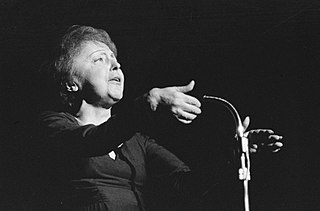
Cluster & Eno is a collaborative album by the German electronic music group Cluster and English ambient musician Brian Eno. The style of this album is a collection of gentle melodies: a mixture of Eno’s ambient sensibilities and Cluster's avant-garde style.
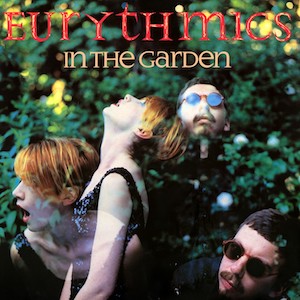
In the Garden is the debut studio album by the British new wave duo Eurythmics. It was released on 16 October 1981 by RCA Records.
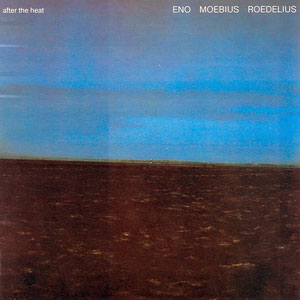
After the Heat is a 1978 album by Brian Eno, Dieter Moebius and Hans-Joachim Roedelius, credited to "Eno Moebius Roedelius". The album represents the second collaboration by the trio, the first being 1977's Cluster & Eno. As with the previous album, After the Heat was created in collaboration with the influential "krautrock" producer Conny Plank.
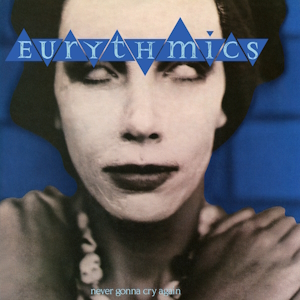
"Never Gonna Cry Again" is the debut single by the British new wave duo Eurythmics, released in 1981. It was taken from their debut album In the Garden.
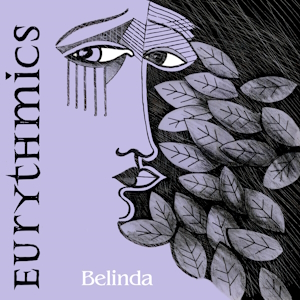
"Belinda" is a 1981 song by the British new wave duo Eurythmics. It was the band's second single, and the second and final single to be taken from their debut album In the Garden.

Soon Over Babaluma is the sixth studio album by the rock music group Can. This is the band's first album without a lead vocalist who does not play an instrument, following the departure of Damo Suzuki in 1973 during which he married his German girlfriend. The vocals are provided by guitarist Michael Karoli and keyboardist Irmin Schmidt. It is also their last album that was created using a two-track recorder.

Out of Reach is the tenth studio album by the German krautrock band Can, released as an LP in 1978 on Harvest Records. It is their tenth official studio album, discounting compilations such as Unlimited Edition.

Rite Time is Can's twelfth and final studio album, considered a reunion album because of the time elapsed since the band's previous album, Can, which had been released in 1979. The album consists of sessions recorded in the South of France in late 1986, edited extensively by the band over the course of subsequent years. Rite Time features the vocals of the band's original singer, Malcolm Mooney, who had left the group in 1970 after their debut album Monster Movie. Upon the album's initial release, "In the Distance Lies the Future" only appeared on the CD version, but it was subsequently featured on the 2014 vinyl reissue.

Rastakraut Pasta is the first full-length album by German electronic music duo of Dieter Moebius and Conny Plank.

Profumo is the eighth album by Gianna Nannini. It was released in 1986.
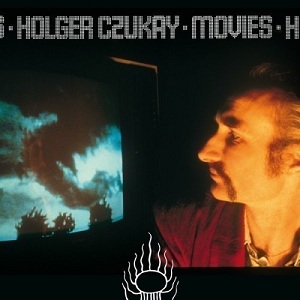
Movies is the second album by Holger Czukay, released in 1979 through Electrola.
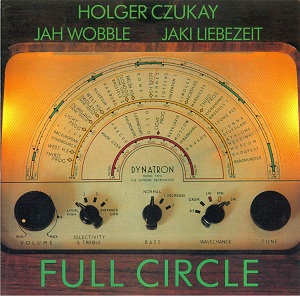
Full Circle is a collaborative album between musicians Holger Czukay, Jah Wobble and Jaki Liebezeit, released in 1982 through Virgin Records.

Der Osten ist Rot is the fourth album by Holger Czukay, released in 1984 through Virgin Records.
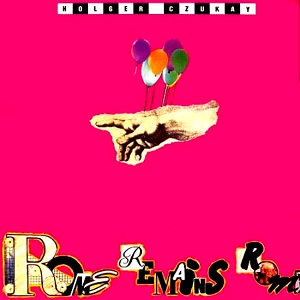
Rome Remains Rome is the fifth album by Holger Czukay, released in 1987 through Virgin Records. One single was released, Blessed Easter, which samples Pope John Paul II's Easter message.

Radio Wave Surfer is the sixth album by Holger Czukay, released in 1991 through Virgin Records.

Moving Pictures is the seventh album by Holger Czukay, released in 1993 through Mute Records.

Good Morning Story is the seventh album by Holger Czukay, released in 1999 through Tone Casualties.
La Luna is an album by Holger Czukay, released on June 13, 2000. The album originally consisted of one extended work, "La Luna", recorded four years earlier and described as "an electronic night ceremony". According to Czukay,
It seems to me that certain types of albums almost create themselves. In such cases the composer is merely the conduit for a pre-existing energy waiting to be transformed into sound. My experience with La Luna was very much like that. The album […] is in many ways a product of something similar to the automatic writing techniques of the Surrealists. I had purchased a new sampler and began experimenting with the machine without reference to the instruction manual and filled the brain of the machine to its full capacity with 'sonic memories'. In the late hours of the evening the machine came to life and spoke! The recording you hear is the transcript of this transcendental conversation between man and machine.




